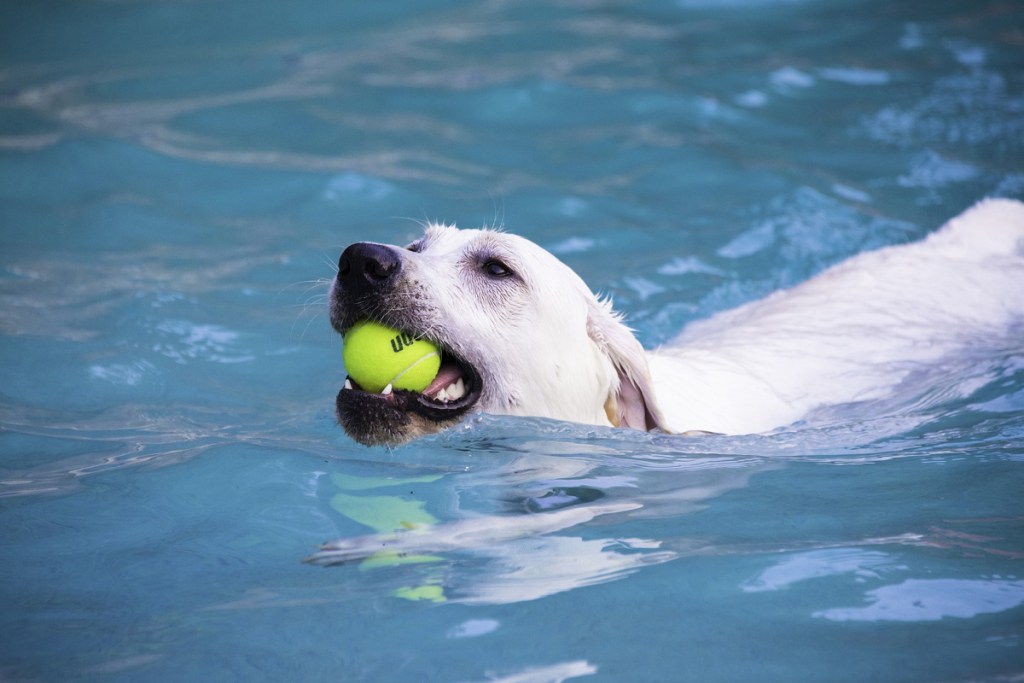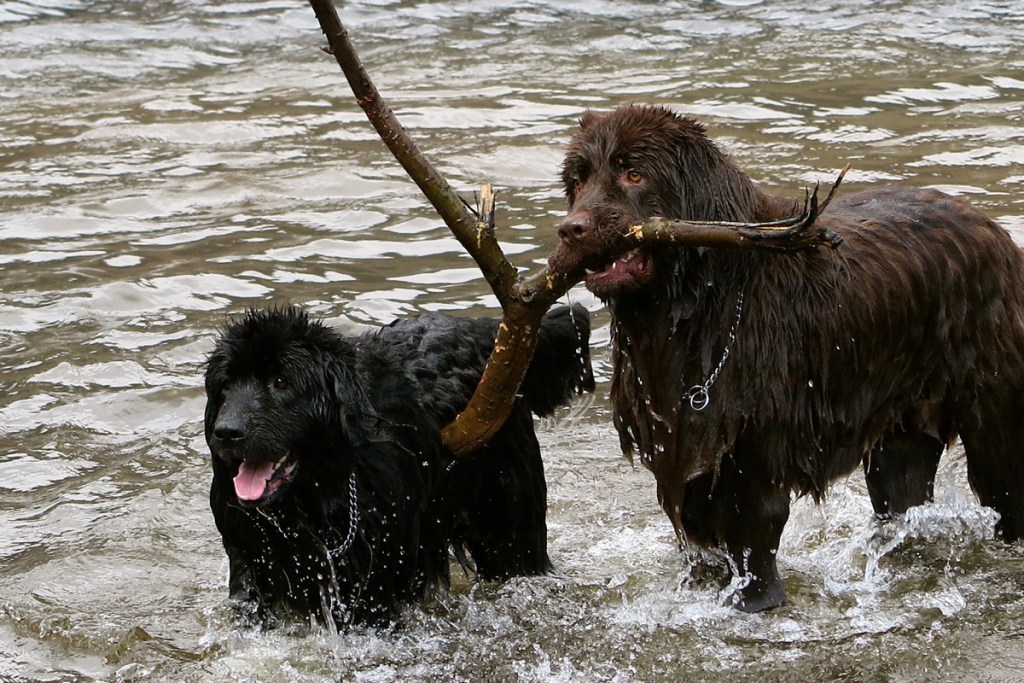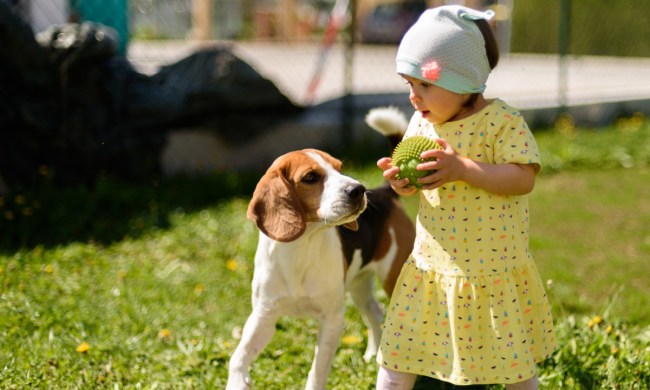You hurl a favorite float toy out into the lake and watch in delight as your dog leaps into the water to retrieve it. She swims back to shore, shakes off excess water, and then drops the toy at your feet, ready to do it all over again. Welcome to life with a dog who loves to swim. They make excellent companions for pet parents who live near rivers or ponds and who enjoy waterfront vacations. If you’re looking to add a four-legged swimmer to your family, here are five dog breeds who love the water.
Labrador retrievers
Background: One of the most popular pets in the U.S., these wonderful dogs were originally bred to retrieve waterfowl for fishermen in Newfoundland. Labradors are excellent swimmers and love nothing more than hanging out in the water.
Temperament: Labs are friendly, outgoing dogs who get along well with people and other dogs. They make loyal family members and are easy to train. This breed is high energy and requires at least an hour of exercise a day to stay healthy and happy.
Grooming: Labradors have thick, water-repellent double coats. They shed throughout the year, with the heaviest hair loss taking place during the spring and fall. Grooming experts recommend brushing these dogs a few times a week to remove dead hair and more often during shedding season.

Novia Scotia duck tolling retriever
Background: According to the Novia Scotia Duck Tolling Retriever Club (NSDTRC), the inspiration for this breed was wild foxes. Hunters in Nova Scotia observed how foxes played along a shoreline to lure waterfowl. Curious to see what the foxes were doing, the birds moved closer to the shore, making them easy prey. Hoping to mimic this strategy, hunters threw sticks and rocks along the shoreline for their gundogs to retrieve. The dogs’ playful action brought the birds to within firing range for the hunters. The duck tolling retrievers — called tollers for short — then swam out to collect any downed birds.
Temperament: Tollers are described as intelligent, outgoing, and affectionate. Enthusiasts at the NSDTRC say that this breed’s love for life is infectious. “It’s hard not to feel joy in your heart when you see a toller retrieve,” according to club members. This is a highly energetic breed and needs at least an hour of exercise every day with plenty of swimming and fetching.
Grooming: Tollers should be brushed weekly to keep their coats healthy and free of mats and tangles. During shedding season in the spring and fall, they should be brushed daily to remove dead hair.
Portuguese water dog
Background: The Portuguese water dog was bred to work in the water. They originally lived along Portugal’s coast and were used to herd fish into nets, retrieve lost tackle, and serve as messengers between ships and the shore.
Temperament: These dogs are intelligent people-pleasers, making them easy to train. As an athletic, active breed, they require vigorous daily exercise.
Grooming: Portuguese water dogs have dense single coats and are a popular choice for people with allergies. Their coats can be either wavy or curly and need to be brushed daily to avoid matting. Most owners take their Portuguese water dogs to a groomer to have their hair trimmed.
Newfoundland
Background: These huge dogs are born swimmers who originally served as rescue workers on board ships with Canadian fishermen. Newfies also hauled fishing nets to shore and pulled cartloads of fish to the market. Today, the breed is considered the “premium water rescue dog,” according to breed experts at the American Kennel Club (AKC).
Temperament: These are sweet-natured dogs who are extremely caring. They love being around children, making them wonderful family dogs.
Grooming: Breed experts at the Newfoundland Club of America describe these dogs as high maintenance when it comes to grooming. Their coats require a thorough brushing several times a week and every day during shedding season to remove dead hair. Newfies can benefit from trips to the groomer for bathing and trimming.

Irish water spaniel
Background: The Irish water spaniel was developed on the Emerald Isle in the 1830s for retrieving fowl both on land and in the water. Breed experts at the AKC refer to this breed as the “clown of the spaniel family.” They are one of the largest of the spaniel breeds and have a naturally water-repellent coat.
Temperament: The Irish Water Spaniel Club of America describes this breed as intelligent, athletic, and versatile. With proper training and socialization plus sufficient exercise, they make loyal and fun-loving family pets.
Grooming: Irish water spaniels have a tight double coat and are light shedders, making them a good choice for allergy sufferers. Their coats are easily maintained, requiring a thorough combing every week to promote healthy skin and remove dirt or loose hair. Grooming experts recommend scissoring every six to eight weeks to shape the coat.
Whichever breed you choose, don’t forget that you need to exercise caution whenever hanging out around the water. Many of these water-loving dogs don’t know when to take a break, and even the strongest swimmers can get tired. A dog life jacket can ensure that your animal companion is safe when boating or kayaking. And be sure to always supervise your dog whenever she’s in and around water.



